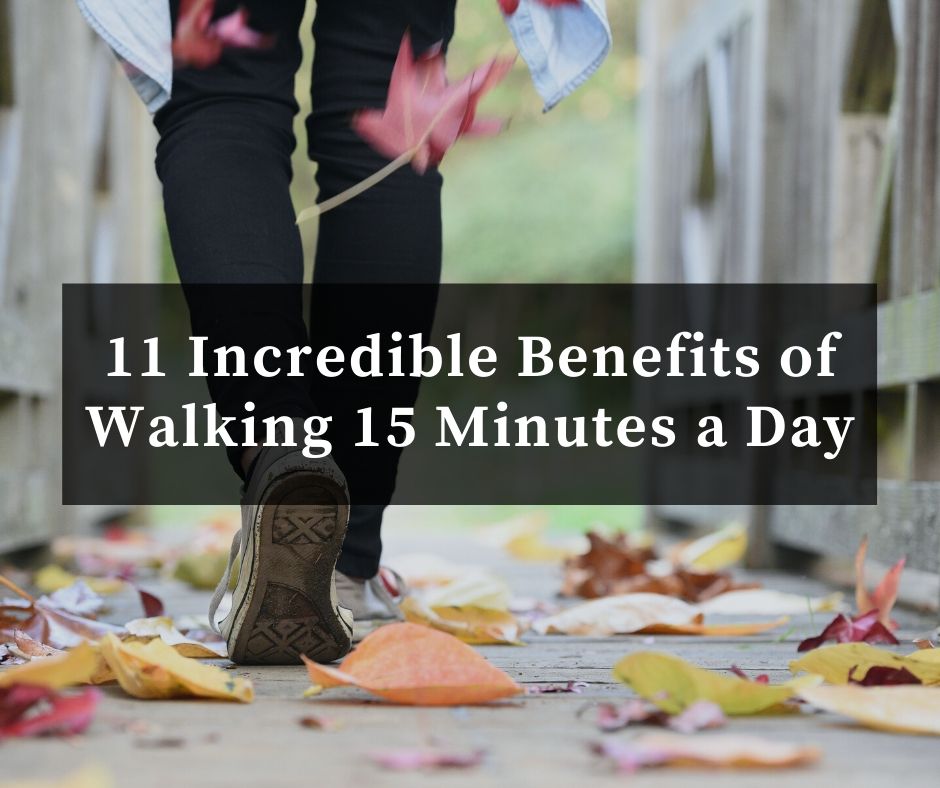
Walking is great for weight loss, but the benefits go far beyond—from higher energy and better mood to stress relief, creativity boost, and more.
Walking benefit: Happiness
Whether you’re just having a down day or a down life, taking a walk can lift your mood—especially when you go outdoors, according to a study published in the American Journal of Preventive Medicine.
The study participants who averaged 150 minutes of moderate exercise (golf, tennis, aerobics classes, swimming, or line-dancing) or 200 minutes of walking every week reported higher energy levels, better emotional health, and a more robust social life when researchers followed up after three years.
Walking benefit: Off-the-charts creativity
Stumped for an idea? Take a quick stroll around the block. Whether you need a solution to a problem at work or you’re looking for inspiration for your novel, walking gets your creative juices flowing in all areas. One Stanford University study found that walking can boost creative output by 60 percent.
The same results were found for both indoor and outdoor workouts, and the creative boost lasted after the walk itself.
Walking benefit: Fewer asthma flares
You don’t need to avoid exercise if you have experienced exercise-induced asthma. You just need to find the right exercise in the right conditions. The American College of Allergy, Asthma and Immunology says walking, along with swimming, golfing and leisure biking, is less likely to irritate your airways.
More generally, look for activities you can do in warm weather and which don’t require significant endurance.
Walking benefit: Metabolism to the max
Metabolic syndrome—the evil trifecta of increased blood pressure/cholesterol, high blood sugar, and fat around your waist—is one of the worst side effects of our sedentary lifestyle. It signals diabetes, heart disease, and even early death. But we have an old-fashioned cure to this modern-day disease: exercise.
One study published in the Nigerian Medical Journal found that the likelihood of developing metabolic syndrome decreased by 29 percent simply by walking over an hour a day.
Walking benefit: Extra. Years.
Want to live longer? Walk. But speed things up to get the longevity benefit. According to the Mayo Clinic, research has shown that brisk walking can increase your lifespan, more so than those who had a slower pace.
Walking benefit: Cash in the bank
Fitness can be pricey! Money for a gym membership, home exercise equipment, workout clothes, and shoes adds up fast. But it doesn’t have to. Walking requires absolutely nothing—even shoes are optional!—but still provides great health benefits. And not only does it save you money on things, it also saves you money in healthcare.
According to a study in the Journal of the American Heart Association, those who exercised regularly saved mega dollars when it came to healthcare costs compared to those who didn’t meet the minimum weekly exercise requirements (30 minutes or more of moderate-intensity aerobic activity five days a week, or at least 25 minutes of vigorous aerobic activity three days a week).
Walking benefit: Zzzzzzzzzz….
Getting a solid eight hours snoozing in the sack is one of the most important things you can do for your health. But sometimes that’s easier said than done. Thankfully a brisk walk may be all you need.
According to the Sleep Foundation, researchers have found that people who exercised regularly, including walking, fell asleep more quickly, slept longer, and had better quality sleep than those who did vigorous exercise or lifted weights.
Walking benefit: Keep calm and carry on
Raise your hand if you’re stressed out. OK, OK, put both your hands back down. Most of us swim in a pool of stress every day and that takes a serious toll on our mental and physical health. But science says walking is one of the fastest, most effective ways to calm down.
According to the Anxiety and Depression Association of America, a simple 10-minute walk may be as effective as a 45-minute workout in terms of reducing anxiety and depression. Moving clears cortisol, the “stress hormone”, out of your system and also helps stop the never-ending stream of worries going through your mind.
Walking benefit: Banish brain drain
It’s official: Walking is also good for your brain. Researchers at New Mexico Highlands University (NMHU) discovered that when you walk, your foot’s impact on the ground sends pressure waves through the arteries that increase blood flow to the brain.
Even better, walking protects your brain by lessening your risk of getting cognitive illnesses like Alzheimer’s disease and other types of dementia.
Walking benefit: Drug-free painkiller
Chronic pain has been called a silent epidemic, with an estimated 100 million Americans currently living with it. And if you’re one of those people battling daily pain the last thing you probably want to do is get up and go for a walk.
But a study published in the Annals of Rehabilitative Medicine found that a regular walking routine diminished chronic lower back pain in study participants. Walking may not be able to cure chronic pain, but it can help you deal with it better.
Walking benefit: Beefed-up bones
Bone density may not be one of the most exciting health benefits of walking, but it’s an important one. People with stronger bones avoid osteoporosis and all the problems that come with it like fractures, disability, and spine shrinkage (seriously, you can get shorter).
And the best way to get strong, healthy bones is by doing weight-bearing exercises like running, dancing and, yes, walking, says the American Bone Health Association. Researchers found that walking programs that lasted more than six months were associated with “significant and positive effects” in bone density of the hip bone.

























